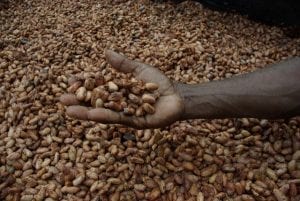The justices noted that, even after 15 years of litigation, the plaintiffs could not demonstrate that either company knew that certain cocoa farms and cooperatives used child labor.
The United States Supreme Court has found that a group of former child slaves cannot sue two American chocolate companies.
According to USA Today, the lawsuit has reached its conclusion after a 15-year-long court battle. The initial complaint was filed by six citizens of the West African nation of Mali, who say they were trafficked to Ivory Coast to work as slaves on cocoa plantations.
After arriving in Ivory Coast, the plaintiffs—then children—were forced to work for up to 14 hours per day. They were regularly beaten, and made to sleep in cramped, locked rooms.
In return for their labor, the children were given little more than the food needed to meet their most basic physical needs.
Collectively, the plaintiffs sought to hold Nestle and Cargill Inc. liable for their slavery, claiming that industry practices facilitate human trafficking.
While foreign nationals can sometimes sue American companies for misdeeds committed abroad, Nestle and Cargill contended both that they make an honest effort to procure slave-free cocoa, and that they should not be held liable for the independent actions of cocoa plantation owners.

However, Justice Clarence Thomas found that the former slaves had no standing to sue, since the alleged misconduct took place entirely outside the United States.
In earlier arguments, Justice Stephen Breyer observed that the plaintiffs alleged Nestle and Cargill partook in wrongdoing simply by doing business with slavers—regardless of whether they knew about the practice or not.
Allowing the lawsuit to proceed, Breyer suggested, could have massive consequences.
“You don’t even allege that they actually knew about forced child labor,” Justice Samuel Alito said in a December hearing. “After 15 years, is it too much to ask that you allege specifically that the […] defendants who are before us here specifically knew that forced child labor was being used on the farms or farm cooperatives?”
While the court did concede that Nestle and Cargill provided technical and financial support to farms which may have used slave labor, the justices said there is no reason to believe that any business decisions made in the United States encouraged illegal labor practices abroad.
Terry Collingsworth, executive director of International Rights Advocates—among the groups representing the former slaves—said the Supreme Court’s decision comes as a great disappointment.
“[Nestle and Cargill] decided on the budgets, they decided on the planning, on the business aspects—all of those things were done from the U.S.,” Collingsworth said.
Collingsworth told Fortune that he and his legal team plan to file another lawsuit, in which they will allege that specific business decisions made by Nestle and Cargill facilitate or otherwise fuel child slavery.
Sources
US Supreme Court blocks child slavery lawsuit against chocolate firms


Join the conversation!